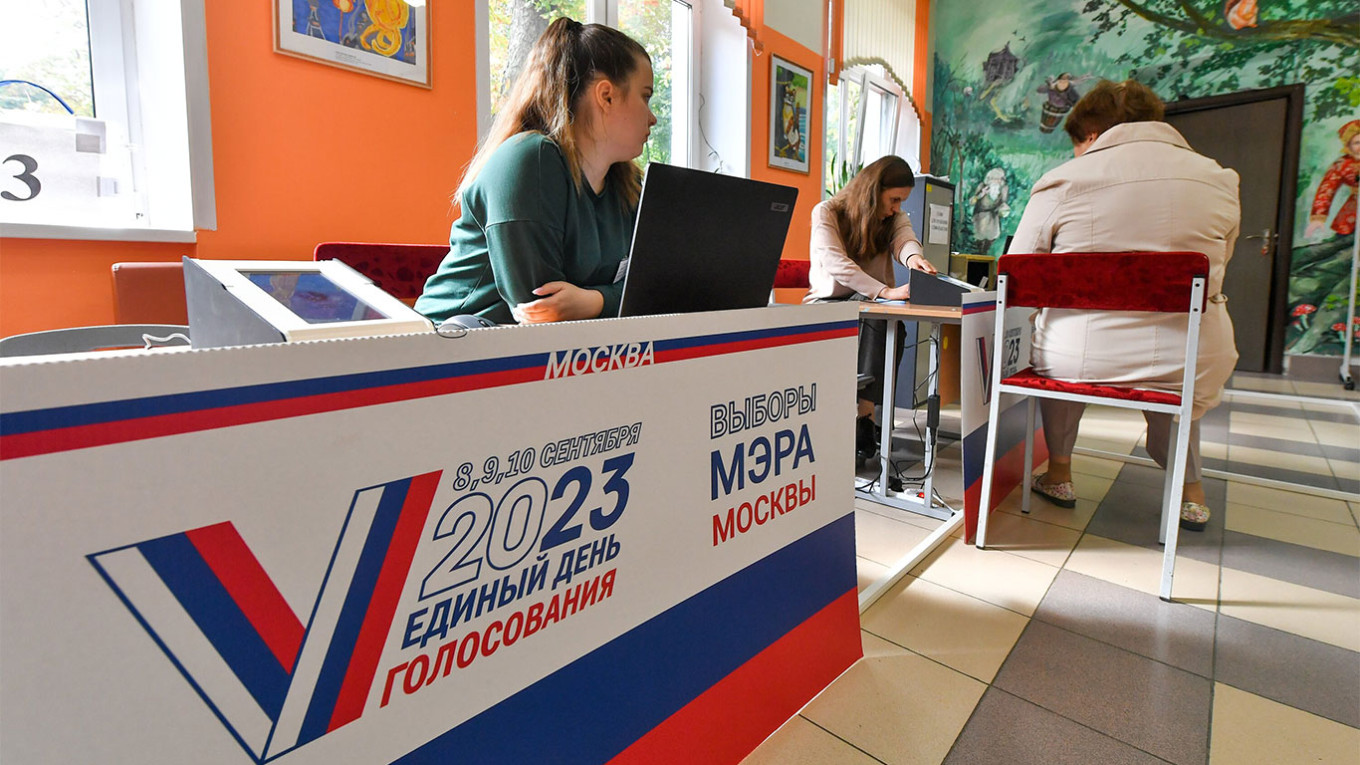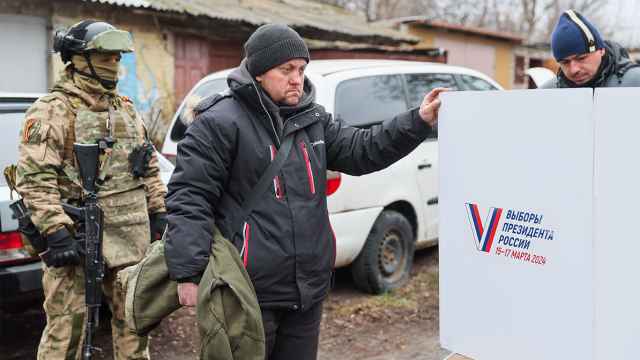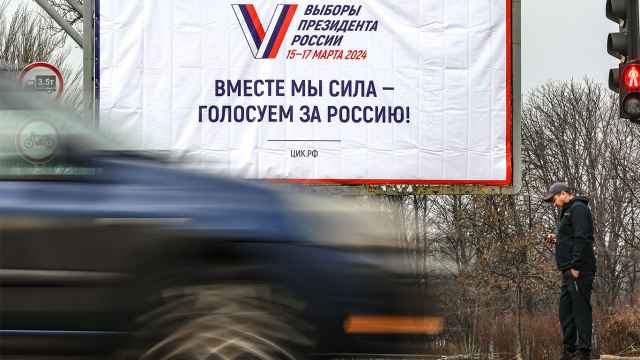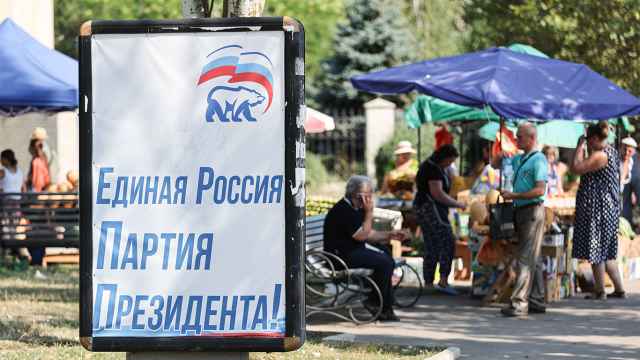Reports of widespread voting irregularities have marred the first day of Russia's local and regional elections, the independent election watchdog Golos reported Friday.
Elections are taking place on Sept. 8-10 in 49 Russian regions, as well as annexed Crimea and the four Ukrainian regions that Moscow claims to have annexed, with Kremlin-backed candidates mostly expected to clinch easy wins.
Golos said it had already received close to 600 complaints of violations as of Friday afternoon.
Threats of violence, vote buying and barring people from casting their ballots were among the most common complaints, according to Golos’ tally.
Other instances of reported fraud include ballot stuffing and so-called “carousel voting,” when a voter casts multiple ballots by traveling between different polling stations.
Residents in the Moscow region, Siberia's republic of Khakasia and the city of Moscow filed the highest number of complaints, Golos said.
Before polls opened on Friday, the watchdog said it had received 734 complaints, with abuse of power, campaign rules violations, coercion and vote buying leading all forms of violations.
Last week, polls opened in the Russia-controlled areas of Ukraine’s Donetsk, Luhansk, Kherson and Zaporizhzhia regions.
An online voting system broke down in Moscow, with residents saying they either failed to receive verification codes via text message or were unable to access the election website altogether, according to the Telegram news channel Ostorozhno Moskva and the independent outlet Sotavision.
Golos said it has filed 75 complaints with the authorities and received official responses in 28 cases. It did not reveal the nature of those responses.
The watchdog, which has long criticized electoral processes in Russia, projects the 2023 local and regional elections to be among the least competitive in years.
Last month, a Russian court placed Golos’ co-chair Grigory Melkonyants in pre-trial detention on charges of running an “undesirable” organization. He faces up to six years imprisonment if found guilty.
Golos itself has not been officially recognized as an “undesirable” organization, but its various legal entities have been added to the Russian Justice Ministry’s list of “foreign agents” in 2013, 2015 and 2021 for a range of infractions.
A Message from The Moscow Times:
Dear readers,
We are facing unprecedented challenges. Russia's Prosecutor General's Office has designated The Moscow Times as an "undesirable" organization, criminalizing our work and putting our staff at risk of prosecution. This follows our earlier unjust labeling as a "foreign agent."
These actions are direct attempts to silence independent journalism in Russia. The authorities claim our work "discredits the decisions of the Russian leadership." We see things differently: we strive to provide accurate, unbiased reporting on Russia.
We, the journalists of The Moscow Times, refuse to be silenced. But to continue our work, we need your help.
Your support, no matter how small, makes a world of difference. If you can, please support us monthly starting from just $2. It's quick to set up, and every contribution makes a significant impact.
By supporting The Moscow Times, you're defending open, independent journalism in the face of repression. Thank you for standing with us.
Remind me later.






